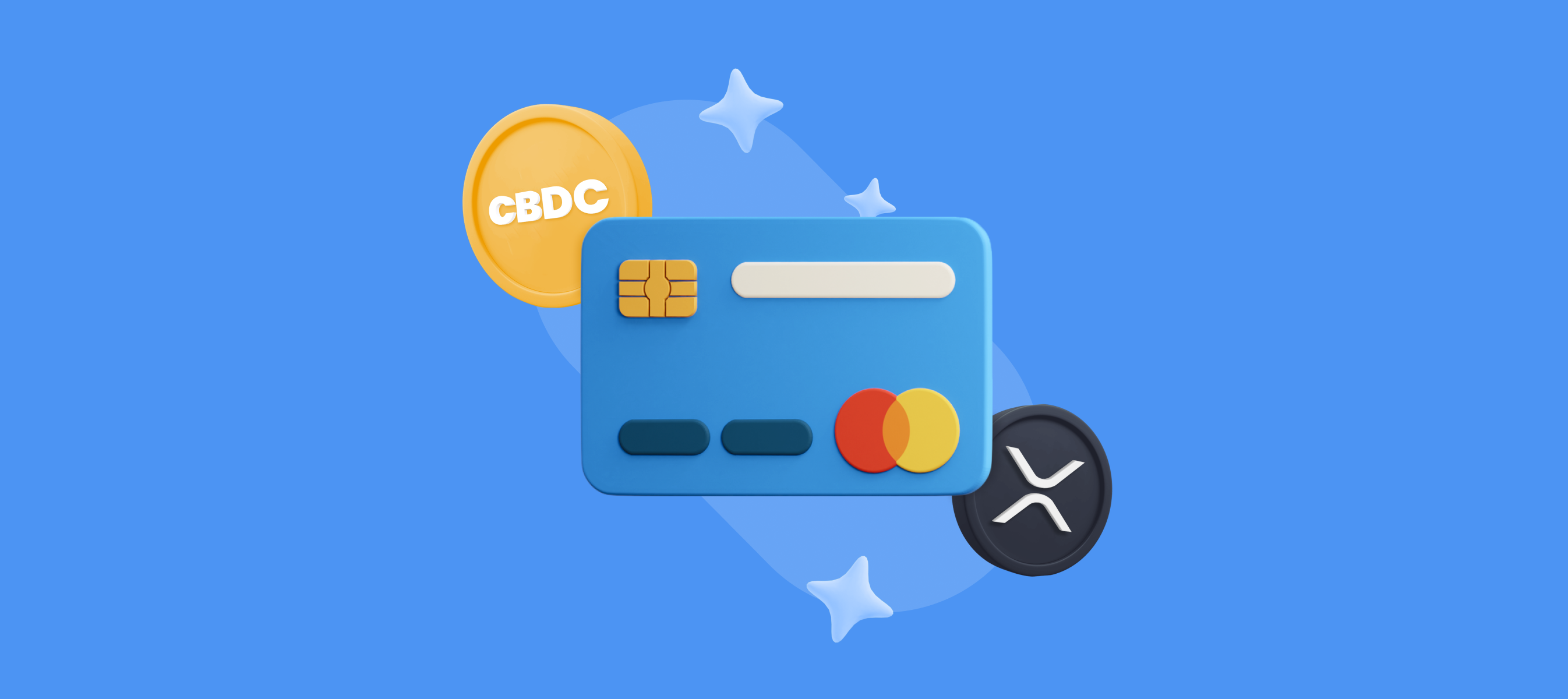Mastercard's Program for CBDC Innovation

This blog post will cover:
- What is Mastercard's CBDC program?
- Who are the partners of Mastercard’s CBDC Program?
- How relevant are CBDC projects today?
- Conclusion
In August 2023, one of the largest payment providers in the world, Mastercard, started a new initiative that is connected directly with the central bank digital currencies (CBDCs). Even though the project is rather new, the firm has partnered up with some well-established industry players.
In this article, we will see what the program is all about and if CBDCs are still a promising sphere.
What is Mastercard's CBDC program?
Recognizing the substantial impact CBDCs can have, Mastercard is proactively taking a leading role in advancing digital currencies.
With the goal of promoting collaboration and supporting forward-thinking within the domain, the payment provider has introduced the CBDC Partner Program. This initiative aims to assemble prominent companies to collectively explore the vast potential of digital currencies, and how they can be effectively put into practice.
Mastercard's perspective on these matters states the importance of improved communication and collaboration between central banks and the private sector for the successful adoption of CBDCs. Their program is supposed to serve as a tangible manifestation of this vision, bringing together expertise from diverse partners, all contributing to the collective effort to facilitate CBDC adoption.
At the same time, from what is known as of August 25, 2023, the exact steps towards this noble goal are unclear: Mastercard has not announced any specific plans.
Who are the partners of Mastercard’s CBDC Program?
In this section, let's delve into the companies actively participating in the program:
- Ripple. Ripple, a prominent crypto company, plays an active role in CBDC initiatives. They have launched a platform dedicated to digital currencies and have participated in the creation of a national stablecoin of Palau and several pilot projects.
- ConsenSys. This blockchain software firm is expected to enhance the technical aspects of CBDC development.
- Fluency. As a firm that specializes in development of tokenized assets solutions, Fluency will improve interoperability within the system. This is a critical element for ensuring smooth and seamless transactions.
- Idemia. This company’s specialization is in technologies connected to digital identity. Its role within the partnership is to enhance the privacy of the clients.
- Consult Hyperion. Collaborating closely with central banks, this participant aids in identifying CBDC requirements. Their insights in the realm of blockchain IDs will also contribute to shaping the digital currencies landscape.
- Giesecke+Devrient. This company takes part in making sure that all involved assets are safe. They provide secure solutions tailored for offline digital payments.
- Fireblocks. Serving as a digital asset platform, Fireblocks manages the market infrastructure related to CBDCs.
This consortium of companies, each with its unique expertise, holds promise in advancing the CBDC landscape. While concrete results are yet to be seen, their collective capabilities are poised to make a huge impact in this quickly evolving sphere.
How relevant are CBDC projects today?
CBDCs that are featured less frequently on the news than say, a year before, are still in high demand, with over 100 countries in the process of exploring these currency alternatives. Eleven states, for instance, Nigeria and some of the Caribbean countries, have already launched their CBDCs.
China stands out with a massive pilot program involving over 250 million participants.
And the European Central Bank is working on launching the digital euro, which could potentially happen in 2028. However, the United States faced difficulties in the CBDC arena. Even though the creation of a wholesale (bank-to-bank) digital dollar is in progress, the retail version which could be useful for the wider population has not been created due to various regulatory uncertainties.
Additionally, it is worth noting that some countries with working CBDCs (e.g. Nigeria), saw low adoption rates. Both Senegal and Ecuador have stopped their efforts in the sphere completely.
Conclusion
It seems like CBDCs hold a lot of promise, with benefits including lower-cost transactions and faster settlements, and Mastercard’s pitch of adding expertise from the well-established private sector might help with the pace of the adoption. While the regulatory side of everything crypto-related seems to still be unsettled in many countries, CBDCs might be the way to bring forward the adoption of blockchain technology while maintaining trust. The project seems very promising but we have to wait and see what will be the results of Mastercard’s initiative.

